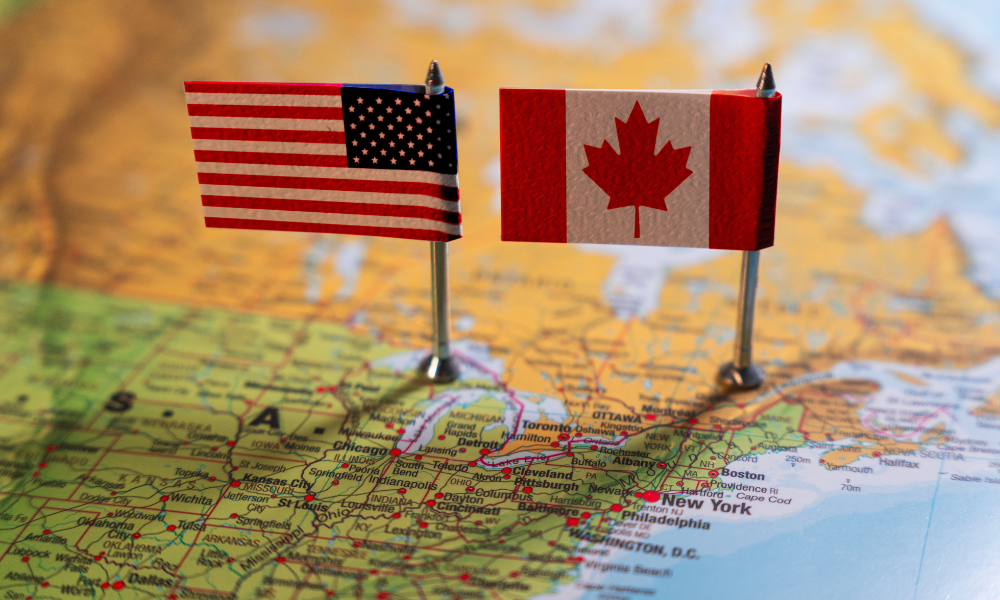'The Olympics is probably one of the few things that we all can find something to cheer about,' says sports and management academic

As the Summer Olympic Games 2024 captivate audiences worldwide, companies should be seizing the opportunity to engage employees and boost morale, according to one expert.
Far from being a mere gesture, the Olympics offer a unique platform for organizations to unite their workforce behind a common goal, says Marvin Washington, associate professor of physical education and recreation and strategic management and organization at the University of Alberta.
He emphasizes the value of this global event in fostering a sense of community within companies.
“If I'm the manager of the organization, I'm looking for things that we can all come together on,” Washington says. “The Olympics is probably one of the few things that we all can find something to cheer about. And I think in a world that's getting increasingly divided and increasingly ‘pick-a-side’, if you're working for a Canadian company in Canada, how would you not cheer for Canada?”
Olympic Games overcome regional competition
Regardless of where employees are from, including other countries if they are newcomers, they can share a collective interest in Canada's performance on the world stage; and even in a country with strong regional identities, the Olympics offer a rare occasion to transcend local rivalries.
“You want to represent that Canada is one of the big players. We care that they win, we cry when they don't win,” he says.
“It's such an easy thing to get together on, because I think that's what makes us all Canadian, in that sense.”
Washington draws a comparison with professional sports, noting, “We could all live in Alberta and still have Edmonton versus Calgary. We could have Toronto versus not-Toronto. Well, we all want Canada to win. We all are excited when Canada does well, we all become experts … It's shown on CBC, and we watch it, and we can talk about it afterwards.”
Engaging immigrants, diverse staff
However, Washington acknowledges the challenge of engaging employees who may not have a deep-rooted connection to Canadian culture, particularly newcomers to the country. He suggests that the Olympics can serve as a cultural touchstone, particularly in the Winter Games where hockey plays a central role.
“Many immigrants come to Canada, and if they want to understand Canada, hockey is a way to do that,” he says. “Hockey is a way of understanding this country — I didn't say it’s the only way, I didn't say it’s the best way, but it is a way of understanding it.”
For companies with international staff, Washington suggests celebrating the diversity of the Olympics by highlighting outstanding players or teams from countries represented by employees, or showcasing games from different nations.
This approach allows employees to celebrate their heritage while also participating in a collective experience, fostering a sense of inclusion and pride, he says.
Creative engagement strategies for Olympic Games
Beyond the emotional connection, the Olympics offer a practical avenue for HR to craft more involved engagement strategies, Washington says. The regularity of the games, held every four years, allows HR teams to plan ahead and develop initiatives that align with this international event.
He suggests leveraging local connections to enhance the experience. For instance, companies can invite local athletes as motivational speakers or organize volunteer fundraising efforts for specific teams.
These activities not only engage employees but also foster a deeper connection to the community and the broader Olympic spirit, Washington says.
“The Olympics is a good opportunity to have a value-add reason to come together. Because I think the spirit of the games is consistent with the spirit of everybody bringing themselves to whatever they're bringing themselves to.”
The aftermath of the COVID-19 pandemic has heightened the need for such unifying events, he says.
“If COVID did anything, it allowed people that wanted to go into their shell to go into their shell and sort of just put their head down and do their thing,” he says.
“I think that level of engagement is part of the joy that we get every four years in the Summer Olympics, and every four years in the Winter Olympics, and that's why I think it's a wonderful, safe space for some type of employee connection and employee togetherness.”




